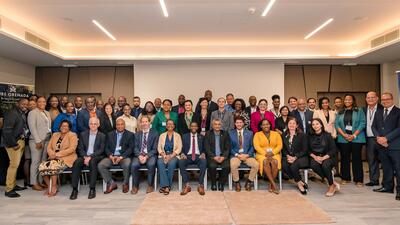What is TiSA and why does it matter?
The Trade in Services Agreement (TiSA) is the first negotiation focused exclusively on updating international standards since the General Agreement on Trade in Services (GATS) more than 20 years ago. It promises to reshape the way of conducting services trade and has the potential to add US$ 3 trillion to global economic output.
Technological advancement and increased use of the Internet have dramatically changed the global services market since then, while the trading system has fallen behind. Negotiators must therefore consider the changes created by the digital revolution. They must address issues including cross-border data transfer, supply chains, state entities competing in commercial services, and the clustering and integrating of services across sectors. The integration of services with all other segments of the economy, including agriculture, manufacturing, and energy, must also be dealt with.
For example, GATS does not explicitly address the growing practice of requiring local storage and processing of business data. Such requirements significantly raise costs, increase data security risks and disproportionally hurt small businesses trying to reach international customers.
Regulations governing the international provision of services must be brought into line with the realities of a digitally connected world. Businesses now rely on the World Wide Web to manage and provide products and services to a global market including 2.9 billion Internet users. Global exports of digitally enabled trade would grow by nearly US$ 3 trillion with updated trade rules, according to a recent estimate by Ed Gresser (21st Century Trade Policy: The Internet and the Next Generation’s Global Economy).
The TiSA negotiations include 50 countries accounting for 70% of world trade in services. GATS Article V provides for such plurilateral agreements if they include substantial sector coverage and eliminate discrimination among participants. While the talks are open to all countries willing to embrace a high level of ambition for services liberalization, some World Trade Organization members have chosen not to participate. A critical mass of participants remains, however, so the provisions and ambition of the agreement will likely become the de facto global standard going forward.
Services are key to competitiveness
Economies and businesses everywhere need efficient services to compete in today’s international economy, especially if they are to connect with the supply chains that are the predominant phenomenon in world trade. Developing nations and small businesses alike need access to efficient, economical services to join global markets.
The entire economy depends on services. For example, manufacturers depend on services workers in their own companies or from outside suppliers in accounting, finance, product design, distribution and logistics, to name just a few. Likewise, crop insurance, extension services, financing, storage, distribution and marketing are necessary to raise and sell crops or livestock.
Moving data across borders
Companies doing business in international markets constantly move data across the globe. While this may be obvious in the case of insurance firms processing claims or accounting firms conducting audits, it is nonetheless essential for any major service. Express delivery companies track packages around the world, airlines monitor engine performance while planes are in flight, and retailers manage procurement and inventory on a global basis.
It is therefore vital that international trading rules ensure the free flow of data. However, governments increasingly and routinely impose restrictions on the ability to manage and move information across borders or require that data be stored on local servers. This reduces the competitiveness and efficiency of every local company that relies on these services.
To avoid these distortive and growth-inhibiting practices, TiSA should:
- Ensure that businesses can store, transfer, access, and process data across borders;
- Prohibit parties from requiring the establishment or use of local servers or other data-storage infrastructure in order to provide digital products and services in a country;
- Ensure non-discriminatory treatment of digital products and services from other parties; and
- Permit parties to regulate cross-border data flows for legitimate policy reasons only within the accepted standards established under GATS Article XIV.
Updating trade negotiations to reflect the realities of current business practices is crucial for promoting global trade. Incorporating language guaranteeing the free flow of data is the most critical step towards achieving that goal.










